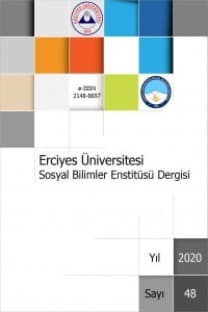Fen ve Teknoloji Dersi “Işık ve Ses” Ünitesinin Öğretiminde Kavram Karikatürlerinin Kullanımının Öğrencilerin Akademik Başarısına Etkisi
Bu çalışmada, ilköğretim 6. sınıf Fen ve Teknoloji dersi öğretim programında yer alan “Işık ve Ses” ünitesinin öğretiminde kavram karikatürü kullanımının öğrencilerin akademik başarılarına etkisi incelenmiştir. Araştırma, ön test-son test kontrol gruplu modele uygun deneysel bir çalışmadır. Araştırmanın örneklemini 2009–2010 eğitim öğretim yılının 2. döneminde Kayseri ilinde bir ilköğretim okulunun 6. sınıfında öğrenim gören 77 öğrenci oluşturmaktadır. “Işık ve Ses” ünitesi konuları araştırmacı tarafından kontrol grubunda tartışma yöntemiyle, deney grubunda ise bu yöntem kavram karikatürleriyle desteklenerek işlenmiştir. Çalışmada veri toplama aracı olarak Salgut’un2 hazırladığı başarı testi kullanılmıştır. Testin Cronbach Alfa güvenirlik katsayısı 0.76 olarak hesaplanmıştır. Araştırmanın nicel verileri SPSS 15.0 paket programı kullanılarak analiz edilmiştir. Araştırmada elde edilen verilerin analizi bağımlı ve bağımsız gruplar için t-testi kullanılarak gerçekleştirilmiştir. Analiz sonucuna göre; deney ve kontrol gruplarının başarı puanları arasında deney grubu lehine anlamlı bir fark tespit edilmiştir (p<0.004)
THE EFFECT TO STUDENTS' ACADEMIC SUCCESS OF THE USE OF CONCEPT CARTOONS IN TEACHING OF "LIGHT AND SOUND" UNIT OF SCIENCE AND TECNOLOGY COURSE
In this study, the effect to students' academic success of the use of concept cartoons in teaching of "Light and Sound" unit in the primary 6th grade Science and Technology curriculum was investigated. Research is an experimental study designed according to the pre test-post test control group model. Study sample comprises 77 students selected from studying students in 6th grades of a primary school in Kayseri city in 20092010 academic year second semester. The subjects in the "Light and Sound" unit was taught by the method of discussion in the control group, by supporting the concept cartoons of discussion method in the experimental group by the researcher. In this study, success test prepared by Salgut3 as data collection tools was used. Cronbach Alpha reliability coefficient of the test was founded as 0.76. The quantitative data were analyzed using the SPSS 15.0 software package. Data analysis were conducted using t-test for dependent and independent groups. The analysis showed that, statistically significant variation in favor of the experimental group between the achievement scores of experimental and control groups was found (p <0.004)
